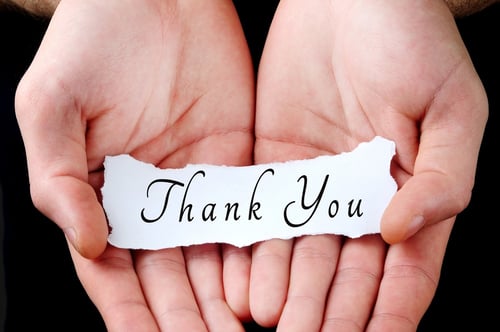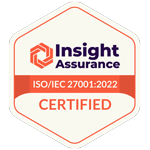
5 min read
I moved to the UK almost 20 years ago, but there’s still one American holiday that I continue to celebrate, and that’s Thanksgiving. There are many reasons one might give up holidays, but for me, Thanksgiving is about the sentiment of the holiday that I love and especially what it represents: Being thankful.
We all have a holiday like that, don’t we? I remember family and friends crowding into our house to celebrate Thanksgiving with us, spending a day catching up and playing games and then going around the table saying what we were thankful for. It’s that part that I love so much, and has trickled over into my job putting in place employee recognition programmes.
Whether it’s a cash or non-cash recognition award, one sent by a manager or by a peer, individual or team-based, the one constant is that they are all celebrations of thankfulness, and a special way to recognise employees.
If your recognition programme isn’t showing “thanks,” here are a few things I’ve learned along the way to make it do just that:
-
Figure out your ‘why’
The first place to start with any reward programme is by answering the question “Why”? Why are you putting it in place and what objectives do you want to achieve? Yes, you can put in a recognition programme without answering this question, but it has a much tougher chance at success. Here are some common objectives for recognition programmes:
- To reward employees for demonstrating company values
- To reinforce certain employee behaviours
- To increase employee morale
- To drive individual or team performance
- To recognise years of service
- And finally, to celebrate success
To figure out your own Why, I always recommend going back to your business and HR objectives and then decide which recognition objective(s) will help you accomplish your overall goals. For example, are you trying to create an engaged workforce to meet your growth objectives? If so, then recognising years of service won’t deliver against these objectives, however, rewarding company values and/or reinforcing certain behaviours will.

-
Don’t forget your “family”
If you remember my Thanksgiving story I said that we went around the table so that everyone could talk about what they were thankful for. When it comes to recognition it is critical that we do the same thing, give everyone a voice to recognise, and make everyone eligible to receive recognition. I like to think of my employees as a part of my family — we’re grateful for each of them, in different ways. This doesn’t mean that everyone receives the same recognition, but that you think through each part of your recognition programme, you can figure out how best to touch your employees in different ways to meet your different objectives.
-
Create a balanced programme
Just like your Thanksgiving or holiday meal, your employee recognition approach should be balanced, with something for everyone. For instance, you know that your picky cousin doesn’t like peas, so make sure you’ve got carrots for her. Your mother prefers dark meat over white meat, so have both on the table. You see where I’m going with this, right? Well, the same is true when it comes to recognition, for there is no one-size-fits all approach to recognition, as employees are motivated and feel appreciated in many different ways.
I learned this firsthand from survey results of our own. We asked 1,200 people which they would prefer: Cash, a shopping voucher, a Kindle or an experience. We had 55 percent women and 45 percent men answer this question and the results were a mix of responses. Nearly 50 percent said cash, a third said an experience and smaller groups said they would prefer a shopping voucher or a Kindle. What this says is that it is important to first of all understand what your employees want, and then put in place a variety of awards that will best meet their needs.

-
Decide how you’ll “give thanks”
After these steps, you need to decide how you’ll actually implement your recognition programme. You’ve answered your Why, so now you need to answer your What. By that I mean, what kind of programme do you want to create to support your objectives? At my Thanksgiving meal, I may give thanks to my parents by being sure I cook my father’s favourite dessert or include both kinds of cranberry sauce to go with the turkey (everyone has their preference!). For your recognition programme, you may look at some of these questions:
- Do you want a formal or informal program?
- Do you want to recognize with cash or non-cash?
- Do you want to recognize individuals and/or teams?
- Will all employees be eligible?
- What will you name your programme?
- Will it be an online or paper-based approach?
- Will it be global or local?
Just like every family celebration is different, every recognition programme will have its own characteristics and quirks to make it unique and special. But as important as I think it is to give thanks and celebrate whatever your local holiday is, the same can be said for recognition. Studies have shown that employee recognition can increase engagement, productivity, retention and customer satisfaction.
So ask yourself, what do your employees have to be thankful for this year? And to my American friends and family out there: Happy Thanksgiving!



